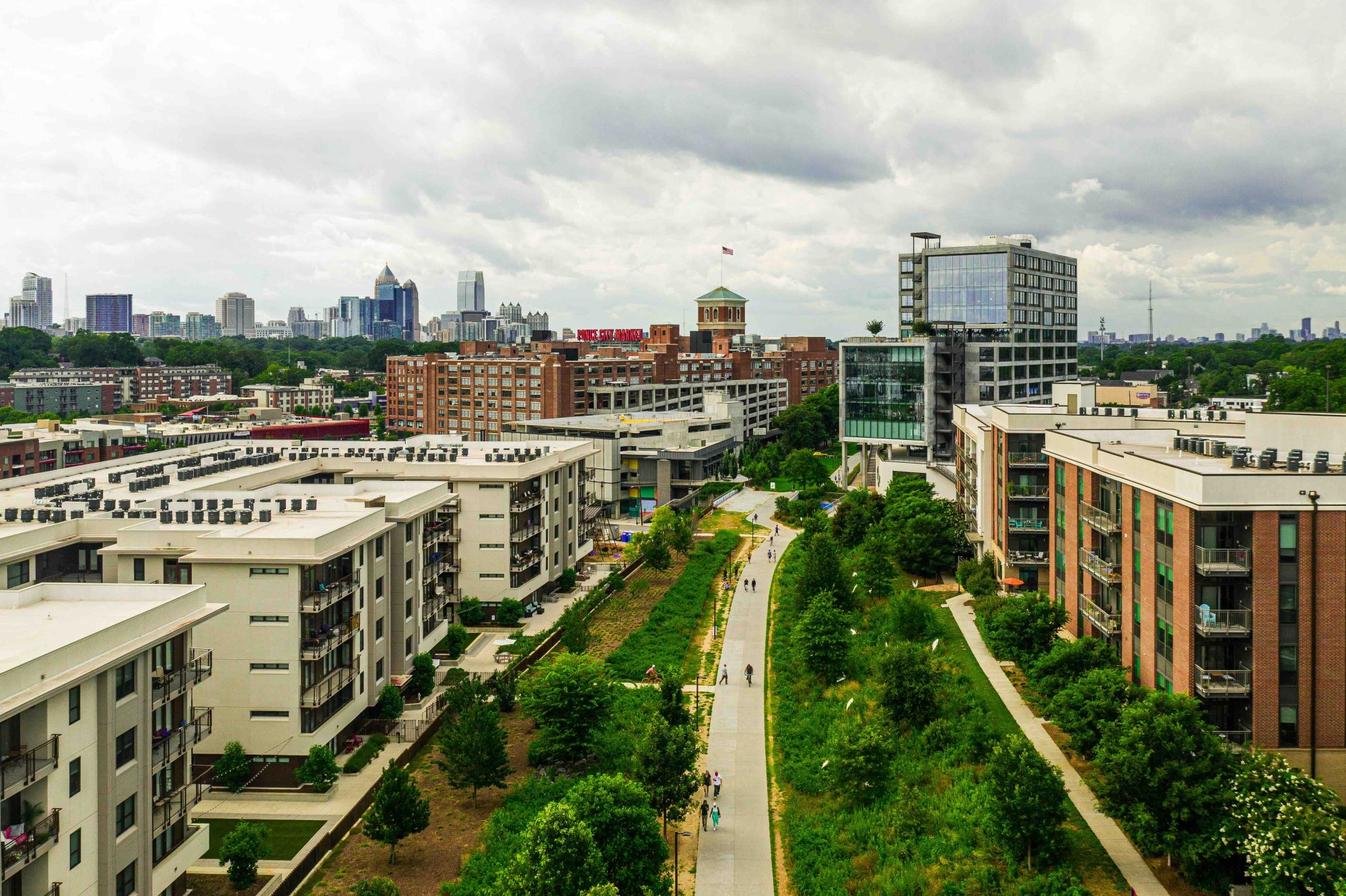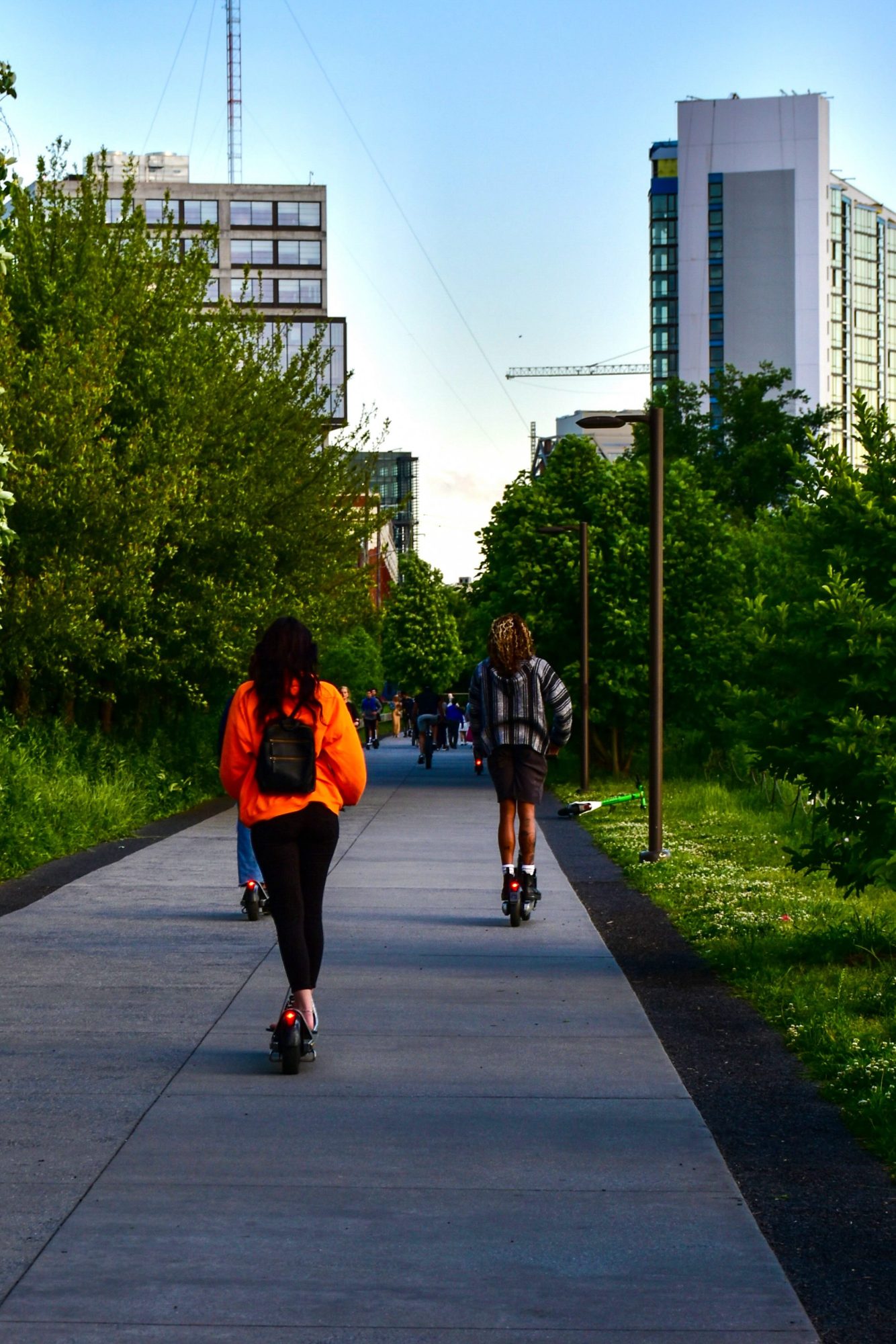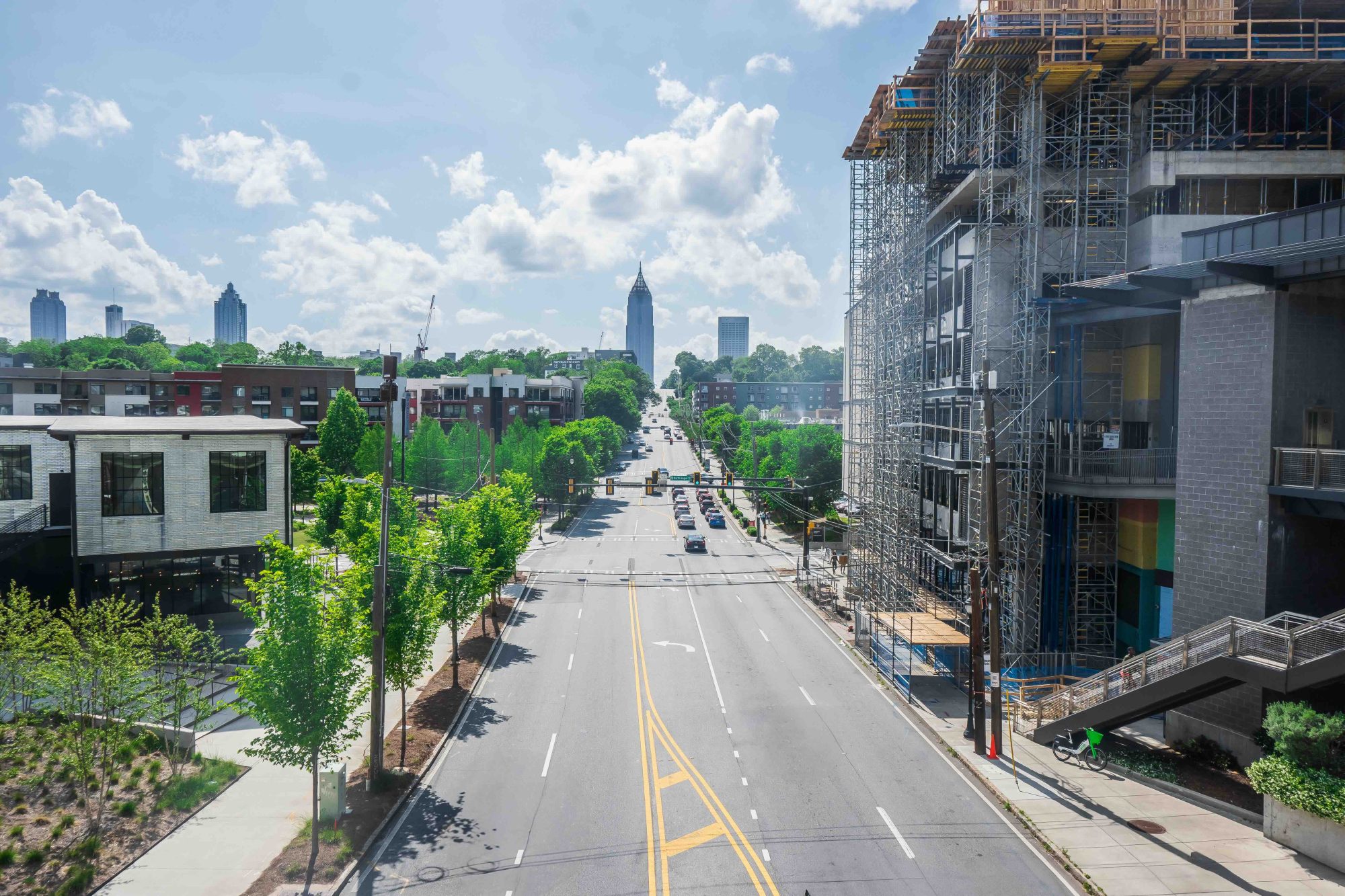By

Image Source: Adobe Stock
More than 25 years ago, the vision to transform Atlanta’s old rail lines encircling the city into vibrant green spaces was born. This vision continues to create economic growth and connections between some otherwise beleaguered neighborhoods. Transit and affordable housing are also part of the vision.
The Atlanta Beltline is now one of the largest redevelopment programs in the nation. It has come a long way since the concept was birthed nearly 20 years ago despite a myriad of political obstacles and a series of dramatic economic shifts. According to the latest annual report, the Atlanta Beltline has had a $9 billion economic impact on the city, with $10 billion in economic development.
Currently, the Beltline is a series of public parks and multi-use trails. Its future includes a push for more affordable housing, along with a streetcar system that connects with the city’s transit system, MARTA. However, its past started in the mind of one grad student.
In the late 1990s, Georgia Tech graduate student Ryan Gravel noticed that the neglected railroad tracks formed a rough loop around the city and saw the opportunity to repurpose the track corridors into vibrant public spaces with transit, connected neighborhoods, and new economic opportunities. He expressed these thoughts in a thesis.
The project gained momentum through word of mouth and community meetings, and Gravel and others created Friends of the Beltline to support critical partners.
In 2005, then-Atlanta Mayor Shirley Franklin formed the Beltline Partnership to coordinate the actions of the many organizations and partners involved in funding the Atlanta Beltline. She found key donors, and eventually, the city codified the Beltline Redevelopment Plan and set up the Beltline Tax Allocation District to finance the projects.

Image Source: Adobe Stock
After overcoming numerous hurdles, including the Great Recession, which cut into funding for the Beltline, the West End Trail opened in 2008. This project included renovating Gordon White Park and beginning the Beltline Arboretum. Two years later, the Northside Trail opened, and in 2011, the Historic Fourth Ward Park and Skatepark, along with new green spaces, immediately became beloved community gathering spots.
This all came along despite the project’s rough start. The City of Atlanta had signed an agreement with the Atlanta Public Schools and Fulton County to create the Beltline Tax Allocation District, or TAD, but the following year, Attorney John Woodham filed a legal challenge to the use of school taxes to fund the Beltline.
It would take a full decade to resolve differences in court and get the project back on track.
The taxing district works so that taxes collected on property above its baseline value can be used to fund the Beltline so the city doesn’t lose base taxes.
The project also receives federal funding, grants, and contributions from nonprofits.
Tax increments can also fund affordable housing along the Beltline, which encompasses 45 neighborhoods.
Atlanta Beltline, Inc., has about 70 employees, including engineers, planners, and economic development specialists. The organization spends the money to build trails and green spaces and on property that can be used for new development, including affordable housing units. The Atlanta Beltline Partnership, which has six employees, gathers the funding.
Of the 22-mile corridor, construction will be complete on about 85 percent of the green spaces by the end of this year and before Atlanta hosts eight World Cup soccer games in 2026.
The Beltline is a symbol of the city’s commitment to innovation, inclusiveness, sustainability, and community-building.
“There has been a lot of community support since (Gravel’s) thesis was made public. This is a way to help people get around the city in a way they don’t have to use cars,” said Jill Johnson, vice president of Government Affairs for the Atlanta Beltline Inc.
“They spent two years going to planning meetings and gathering community support. We also made sure the project would support more jobs, affordable housing, and support small businesses,” she said.
The transit component is finally beginning to take shape. “We focused on light rail or street cars. It will be another layer of the transit system in Atlanta to complement the bus network,” Johnson said.
“Right now, the streetcar runs in a 2.8-mile loop downtown. MARTA has reached 30 percent design to extend it to the east side trail,” she said. “They are wrapping up studies to look at improvements they can make to the current system.” That includes streetcars that run on batteries instead of using overhead wires.

Image Source: Adobe Stock
While property values have gone up along the Beltline, potentially due to the added greenspace and amenities, they have also gone up throughout the region.
The city has worked to ensure long-time residents are not displaced, establishing programs to provide affordable housing as development continues, said Dennis Richards, vice president of Housing, Policy, and Development. The Beltline has acquired over 80 acres of land, which it can sell to developers who agree that at least some of the units they build will be considered affordable.
The Atlanta City Council created an inclusionary zone, meaning any new multi-family development must have a certain percentage of affordable housing, Richards said.
Homeowners within the Westside and Southside Atlanta Beltline neighborhoods can take advantage of the Legacy Resident Retention Program, which covers increased property taxes through 2030.
Richards said the program pays the difference in taxes, so longtime residents won’t be priced out even as the neighborhoods become more gentrified.
The annual report states that affordable housing along the corridor has more than doubled since 2018. By the end of 2023, the Beltline was more than 68.5 percent towards its goal of 5,600 affordable units by 2030, with 3,555 already created or preserved. Most are reserved for families earning 60 percent of the area’s median income.
“This year, Atlanta Beltline, Inc. achieved a pivotal milestone with the passing of the largest budget in Beltline history for the fiscal year 2024,” said Board Chair John Somerhalder. “The significance of this lies in our commitment to constructing trails, acquiring land, and fostering residential and commercial affordability around the Beltline corridor.
“The Beltline made great strides toward updating the Strategic Implementation Plan (SIP), which the Board approved in 2024. This represents another hallmark achievement,” he said in the 2023 Annual Report.
“Last updated in 2013, the revised SIP provides a roadmap to completing the Beltline’s programmatic goals by the end of 2030. The board applauds the team for this massive undertaking and reinforces its commitment to keeping the Beltline on track and in budget with the SIP.”
Magazine
Playmaker Events
Connect with playmaker